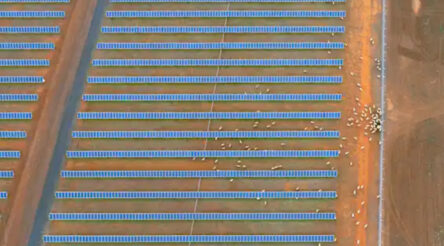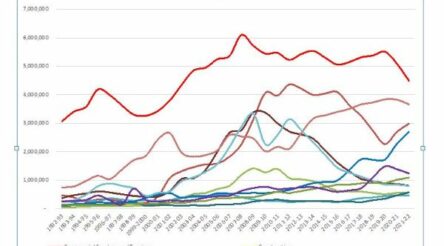A future Made in Australia is a matter of ideology

By Peter Roberts
So whether or not Australia will actually have a Future Made in Australia as wished for by the Albanese government comes down to what it has always come down to – a matter of Ideology.
The sides of the debate are clear.
Ranged against are the usual suspects – economically regressive media such as the Australian Financial Review (my old employer of 27 years) and the Productivity Commission.
On the other side is a federal government that has responded to massive sums being invested by the United States and Europe to secure critical industries with:
- A $15 billion National Reconstruction Fund which would co-invest in developing strategic industries such as critical minerals and green energy generation
- A strengthening of policies put in palce by the former coalition government to develop an indigenous defence sector capable of acting as a key element of Australia’s future national security
- And an as yet mainly undetailed proposal for a Made in Australia Act that would include subsidies to establish industry sectors that a country like Australia must have if it is to pretend to the title of an advanced economy.
The position of the Productivity Commission, known in the past by some as the Industries Assassination Commission, was made clear by its recently appointed Chair Danielle Wood, who warned that taxpayers would be forced to foot the bill for the government’s plans.
Wood, chosen by the Treasurer Jim Chalmers to lead the body in a predictably futile attempt to reform its dry economic culture, said the idea of subsidies for manufacturing would take money away from higher economic priorities.
Never mind the hundreds of billions of dollars being offered by competitors for footloose foreign investment such as the United States through its Inflation Reduction Act. Apparently we should just let the US and the European Union siphon it all up and we should continue supplying undifferentiated minerals as we have always done.
Of course this advice has been accepted by government for decades and this has given Australia the economic structure of a quarry and low value service sector.
Data from the Harvard Kennedy School shows that the country’s Economic Complexity Index (ECI) rating has plummeted to 93rd, down 12 positions in the past ten years.
I, for one, think it undersells ourselves to have an economic structure on a par with Uganda and Pakistan, but the AFR and the PC seem unconcerned by that.
Supporting the government are @AuManufacturing News, a minnow of course, and stronger voices such as the Australian Manufacturing Workers Union.
National Secretary Steve Murphy said there needs to be a shift in thinking when it comes to leaving the renewable sector to the market- the guiding principal of PC economic thought.
Murphy said: “We need to burst this bubble when it comes to leaving everything to the market. We’ve seen time and time again how it leads to economic failure which often ends with disastrous consequences for all of us.
“Government has a bigger role to play in all of this.”
“These announcements (by the federal government) mean that Australia will become more than a quarry, a farm and a nice place to visit.
“Lifting the Australian economy up the value chain (means) we have a chance now to reshape our economy that benefits workers.”
So, yes, take your pick – are you happy with Australia with a resources-based, fragile economy, or do we strive for something where Australia competes on the basis of skills and innovation with the leaders of the world rather than Uganda?
So, take your pick.
Further reading:
Treasurer opts for tinkering with mostly ignored Productivity Commission
Australia’s lack of economic complexity on display – again
@aumanufacturing Sections
Analysis and Commentary Awards Defence Manufacturing News Podcast Technology Videos










